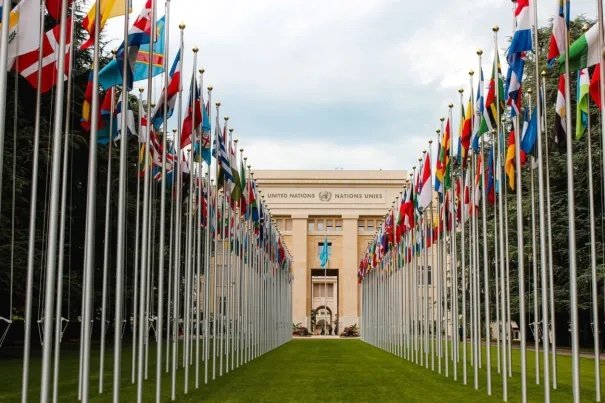The UN Matters. That’s Why It Needs To Be Fixed
Photo via Unsplash (Mathias Reding)
STEPHEN BLINDER: From domestic issues that Americans cite as most pressing to the Russia-Ukraine and Israel-Hamas wars, many crises that demand America’s urgent attention require cooperation and engagement from the global community. While the United Nations (UN) is intended to provide a forum for such coordination, its effectiveness has been increasingly called into question by members of Congress and international leaders alike. While the UN remains an indispensable asset to diplomacy, it needs to be fixed to restore its credibility and strength to meet the unique challenges of the world today.
According to the UN Charter, its purpose is “to be a centre for harmonizing the actions of nations in attaining these common ends.” Indeed, one need only look at the state of the world prior to 1945, the year the UN came into existence, to understand why its creation was deemed so vital. Yet, it is exactly because the UN was established during this period that it has become ill-equipped to effectively and efficiently serve its role. Facing “different global powers, different threats and different economies,” as one analyst describes, the UN Charter envisions a strikingly different world from that in which we live today.
Chief among the UN’s present obstacles is the Security Council, its composition reflecting the world order in 1945. With each of the five permanent members – China, France, Russia, the United Kingdom and the United States – holding a veto power, the Council today is often paralyzed on the most pressing but divisive issues. In fact, the veto has been used over 300 times to block Security Council proposals.
Yet, even the extent of this impediment to action overlooks perhaps the foremost problem with the Security Council: it fails to represent the interests of the global community. Most evidently, the Security Council lacks permanent representatives from Africa, Australia/Oceania, and South America. Indeed, Africa was still being decolonized when the Security Council was expanded in 1965 for the only time in its history. This imbalance is also behind the efforts of the G4 countries – Brazil, Germany, India and Japan – to gain proverbial “seats at the table.”
Amending the UN Charter is a tall order at any time, no less when the organization is caught in a power struggle. According to Article 108 of the Charter, reforms can only be enacted “by a vote of two thirds of the members of the General Assembly and ratified in accordance with their respective constitutional processes by two thirds of the Members of the United Nations, including all the permanent members of the Security Council.” Although numerous reforms have been presented in the past two decades, including former Secretary-General Kofi Annan’s proposals and those by the “Uniting for Consensus” coalition, they remain purely theoretical without the requisite support.
However, while a number of the UN’s constructs and processes now appear anachronistic, its history should dissuade UN representatives and activists from abandoning efforts at necessary reform. As President Biden noted last year before the General Assembly, “[T]he United Nations Charter was not only signed by democracies of the world, it was negotiated among citizens of dozens of nations with vastly different histories and ideologies, united in their commitment to work for peace.” The global community has faced significant hurdles before, from nuclear disarmament in the former Soviet states to eradicating smallpox. While rarely straightforward and without setbacks along the way, transformational agreements are possible, a reality no clearer than in the establishment of the UN itself.
Dag Hammarskjöld, the second Secretary-General of the UN, described the UN’s purpose aptly, saying, “The UN was not created to take mankind to heaven, but to save humanity from hell.” Since coming into force, the UN has largely lived up to Hammarskjöld’s declaration, leading consequential developments in international law, orchestrating over 170 peace settlements and arranging numerous peacekeeping operations. To build on this track record and help prevent failures like those in Rwanda and Srebrenica, the UN must be brought into the 21st century. The UN not only matters; it is a vital, indispensable forum. That’s why it needs to be fixed.
Stephen Blinder is a staff writer for On the Record. He is a junior studying government and philosophy in the College of Arts & Sciences.

